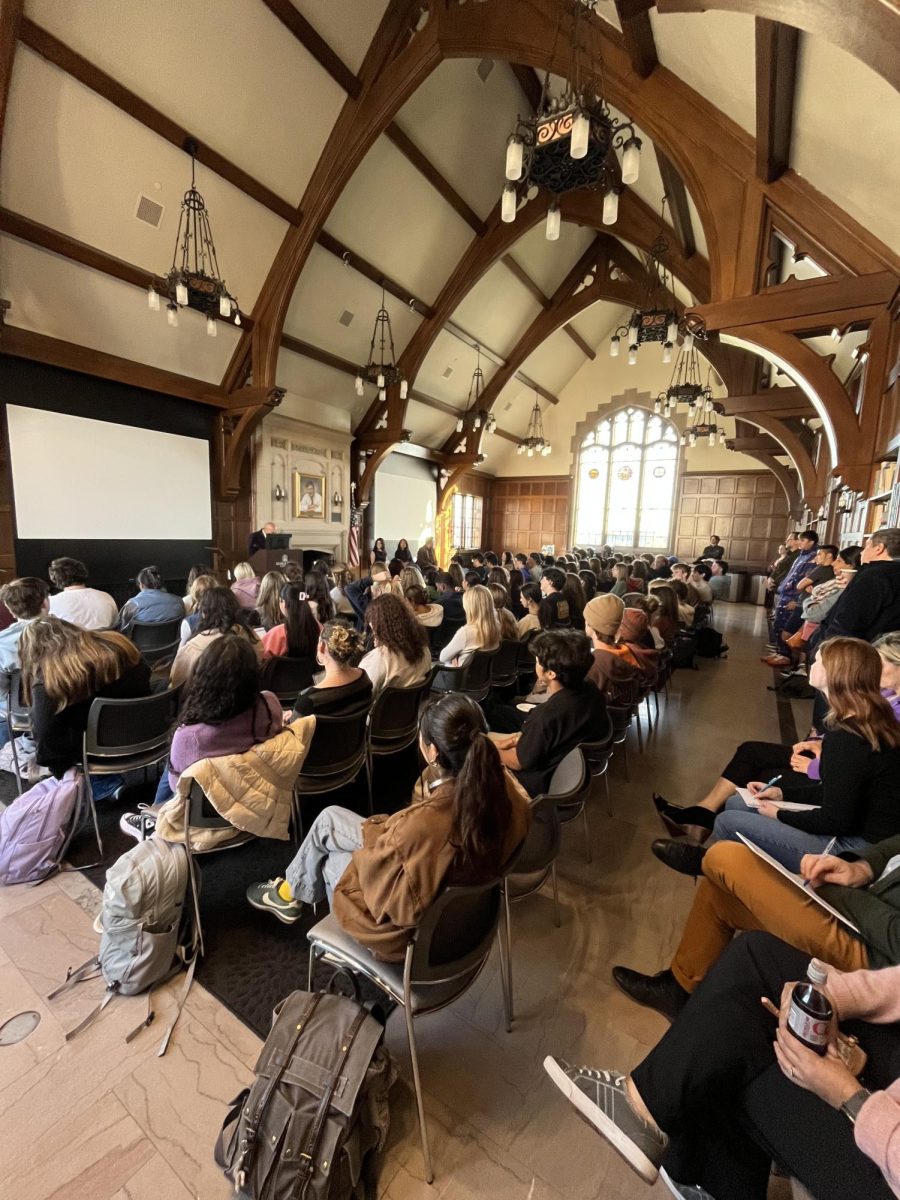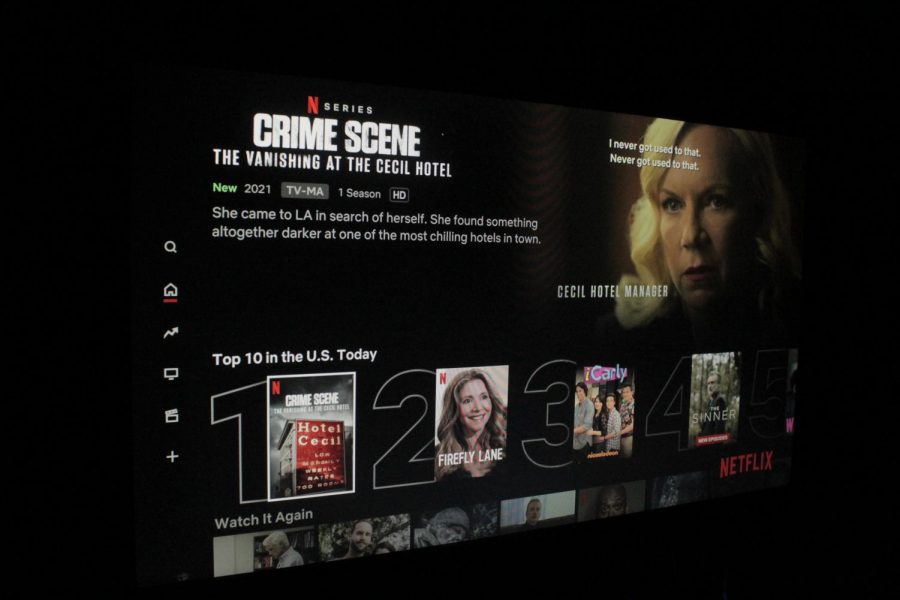 This will surprise approximately no one, but I saw a lot of movies over winter break (between all of the sleeping and eating, of course).
This will surprise approximately no one, but I saw a lot of movies over winter break (between all of the sleeping and eating, of course).
Some were good. Some were just okay. Some were “Parental Guidance.” And right at the end of break, I saw the much ballyhooed “Zero Dark Thirty,” which finally came to Milwaukee a good month after everyone in Los Angeles and New York had already seen it, debated it, analyzed it and got sick of it.
It ended up being the best movie I saw from last year. Considering that I saw more than 100 movies in theaters in 2012, that’s quite a statement. The film is intense, brilliantly crafted, thought-provoking material.
But “Zero Dark Thirty” has become more than a movie. Even before its release, pundits and journalists were wondering about the film’s release date, its proximity to the presidential election and its overall depiction of the hunt for Osama bin Laden.
None of that ended up becoming too scandalous. Instead, the film’s portrayal of torture became the most popular talking point for political and entertainment journalists alike. Everyone with a column in a publication (hi!) has taken to their laptops to furiously comment on either director Kathryn Bigelow’s lack of ethics or her brave filmmaking. She’s been called the best director of the year. She’s also been called Leni Riefenstahl, the famous propaganda director for Nazi Germany.
Members of the federal government even came out against the film, with several politicians, such as Arizona Sen. John McCain, calling Mark Boal’s screenplay inaccurate. Ironically, the Senate Intelligence Committee is now questioning whether the CIA gave too much confidential information to Boal and Bigelow for “Zero Dark Thirty.” That’s right – the government needs to check to make sure it didn’t give up too much glaringly, obviously false information to the filmmakers. Way to cover your bases, guys.
For me, the argument that “Zero Dark Thirty” is pro-torture is rather weak. The assumption of many of these columnists and writers is that Bigelow glorifies torture and that it was a key tool to finding bin Laden.
Neither of those statements are true based on my experience watching “Zero Dark Thirty.” For one, the use of torture provides our protagonists with almost no information. It is only when they have a lunch meeting with one of their detainees that the name of bin Laden’s messenger is revealed. The characters may believe the torture is important and worthwhile, but the actual results prove otherwise.
Even if one wants to argue that the torture indirectly does lead to killing our nation’s greatest enemy, Bigelow’s film does not support its use. Portrayal is not promotion. In fact, the movie makes the torture horrifyingly uncomfortable to watch, forcing us to question our main heroes’ humanity.
The torture occurs near the beginning, and the raid at the end of the film depicts America’s great revenge with no catharsis or satisfaction. No flags are waved. The audience is left with questions: What did we lose in the process? Was everything we did worth the revenge we got? After seeing “Zero Dark Thirty,” it’s hard to argue yes.
I have no problem with people who disagree with these points. It’s a fascinating film that merits debate. More importantly, though, it merits seeing, something “Zero Dark Thirty’s” harshest critics somehow didn’t do.
In The Guardian, journalist Glenn Greenwald condemned the film but noted in his article that he hadn’t even seen it. He later updated the piece to say that he was instead “writing about the reaction to the film.” However, in the article, he wrote that the movie would “inevitably validate” the jingoistic pride of bin Laden’s death. He also noted that Bigelow’s film would “uncritically herald CIA officials as dramatic heroes.”
Strange. “Zero Dark Thirty” doesn’t do that at all. In fact, it challenges one’s jingoism.
I only point out Greenwald because he was one of the most vocal critics of “Zero Dark Thirty.” I give him credit for standing by his words and also eventually seeing the movie (though his post-screening support of his thesis, frankly, sounds more like self-fulfilling prophecy). Though I disagree with Greenwald’s point, he sparked a worthwhile debate and has a right to his opinion.
However, not even seeing the film you’re decrying is a sad statement about the condition of entertainment journalism. Journalists used to leave the instant reaction to the uninformed commenters, but not anymore. The desire to get a point out into public for maximum clicks and views before anyone else has trumped full research and a sense of context.
The movie universe is filled, and possibly fueled, by this kind of immediate opinion-making. We instantly love or hate a movie based on the trailers we see. For instance, some in the blogosphere have already knocked “Star Trek Into Darkness” for its science and its use of clichéd plot points – despite the fact that no one has seen its science or plot points yet because its release date is several months away.
Look at what happened to critic Marshall Fine this past summer. He posted an early negative review of “The Dark Knight Rises” on Rotten Tomatoes. He ended up receiving death threats from angry commenters, so many that Rotten Tomatoes suspended its commenting service. Angry fans refused to accept an opinion on something they couldn’t even have formed an opinion on yet.
Half a year later, Fine’s opinion turned out to be in the majority rather than the minority. I’d love to know if any of those angry commenters apologized to Fine after Nolan’s film rode into theatres riding a Batcopter fueled by plot holes and underdeveloped characters.
Social media has made the world a place of instant reaction. I thought we all seemed to agree that was a bad thing. That we’re losing context and deeper, developed thought in the process. But if we allow our journalists to do the same, I guess I was wrong.
—
Matt Mueller is a senior broadcast and electronic communication major who reviews movies for OnMilwaukee.com. Email him at matthew.mueller@marquette.edu.














Luke Owens • Jan 29, 2013 at 2:49 pm
Welp, now I guess I need to see this movie…